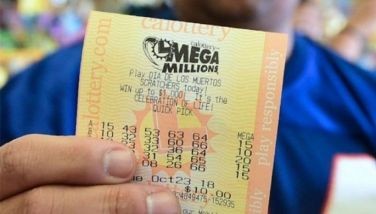Capital formation grows by 19% to P4 trillion last year
MANILA, Philippines — The economy has retrieved part of the investments it lost at the height of the lockdowns, but has a long way to go in recovering the capital inflows it was maintaining before the pandemic.
The Department of Finance (DOF) yesterday reported that capital formation, or the net amount of investment accumulation, grew by nearly 19 percent to P4 trillion last year from P3.37 trillion in 2020.
DOF chief economist Gil Beltran said the contribution of capital formation to the gross domestic product (GDP) rose to 21.6 percent from 19.2 percent on a yearly basis.
However, Beltran said the GDP share has yet to bounce back to the pre-pandemic level of 26.5 percent in 2019. Still, he pointed out that any growth in capital formation, as well as employment and productivity, signals that the economy may be on its way to recovery.
“As a percentage of real GDP, capital formation—which is the most comprehensive measure of investment—rose from 19.2 percent in 2020 to 21.6 percent in 2021. However, this is still lower than its 26.5 percent investment-to-GDP ratio in 2019,” Beltran said.
Likewise, foreign direct investments (FDI) spiked by more than half to a record $10.52 billion in 2021 from $6.82 billion in 2020, even beating the pre-pandemic total of $8.67 billion in 2019.
Beltran said FDI, when measured against the GDP, swelled to 2.67 percent last year from 1.89 percent in 2020 and 2.3 percent in 2019.
“FDI is the more important indicator because it measures the amount of investments in the form of a controlling ownership in a business in one country by foreign investors, which implies more active participation and more commitment by the investor in management,” Beltran said.
On the other hand, portfolio investments, also referred to as hot money, stayed on the negative level of $574.46 million in 2021 from $4.24 billion in 2020. Beltran explained that hot money, in search of financial stability, tends to go to developed economies in times of crisis.
“In contrast, a portfolio investor may buy and sell stocks and bonds daily, and generates profits on price differences. Portfolio investments are referred to as hot money because they can leave anytime,” Beltran said.
Investment pledges made to investment promotion agencies (IPAs) also declined by over a third to P756.63 billion last year from P1.14 trillion in 2020, although Beltran said such a drop shows that firms no longer ask for tax perks offered by IPAs just to locate in the Philippines.
The Philippine economy grew by 5.7 percent in 2021 after shrinking by 9.6 percent in 2020, the worst in its history, and the government wants to cap that recovery with a seven to nine percent growth this year.
- Latest
- Trending
































